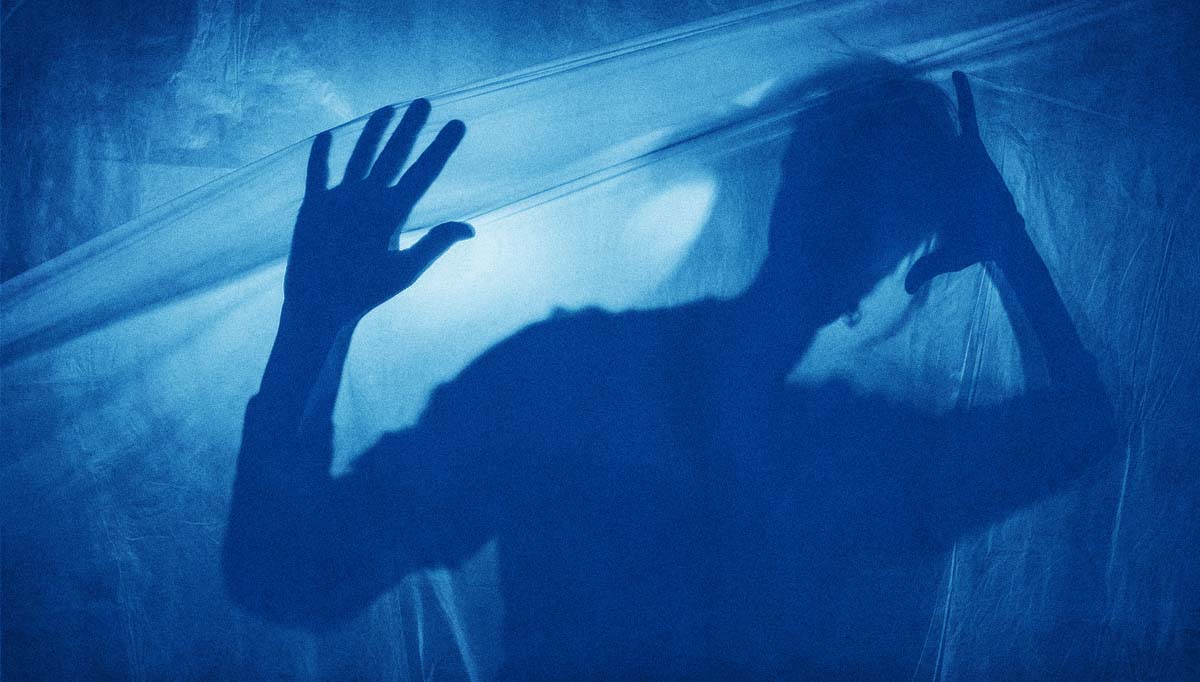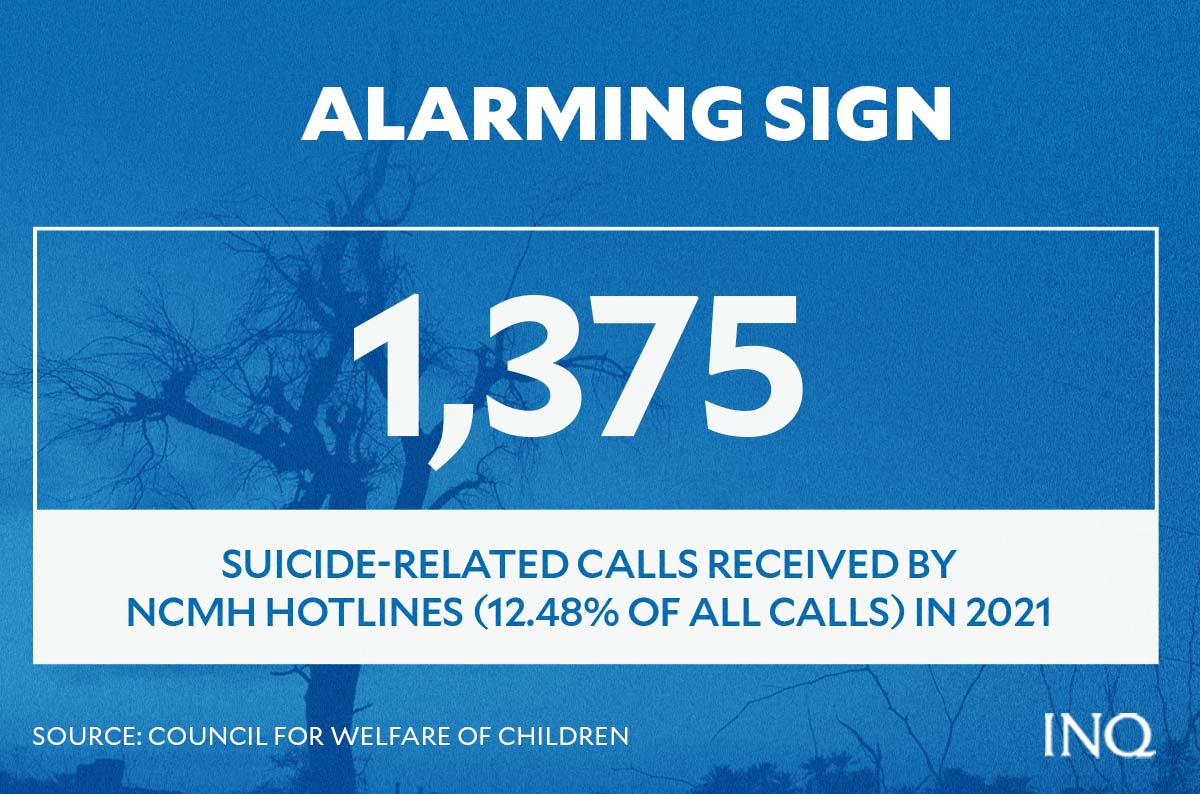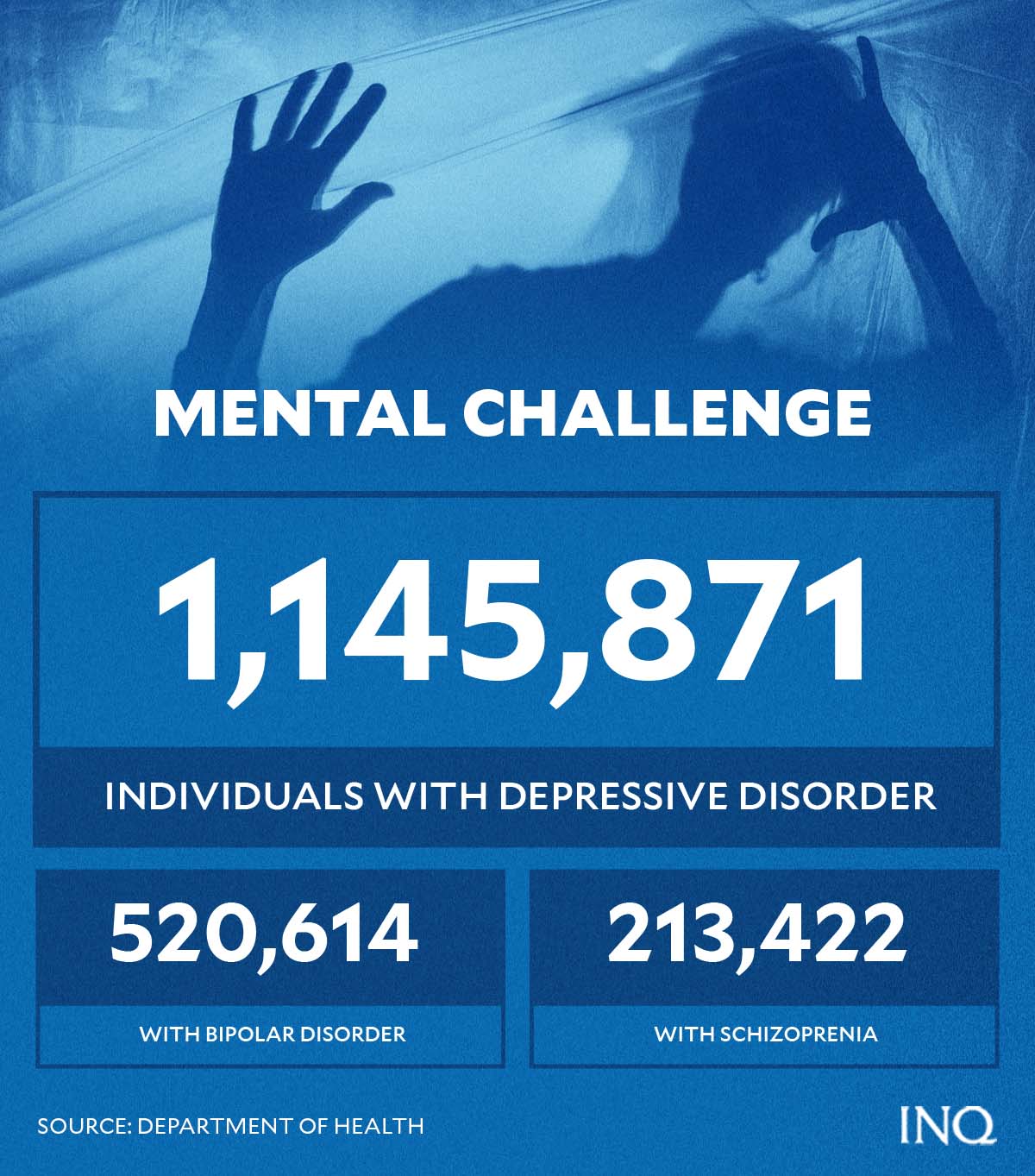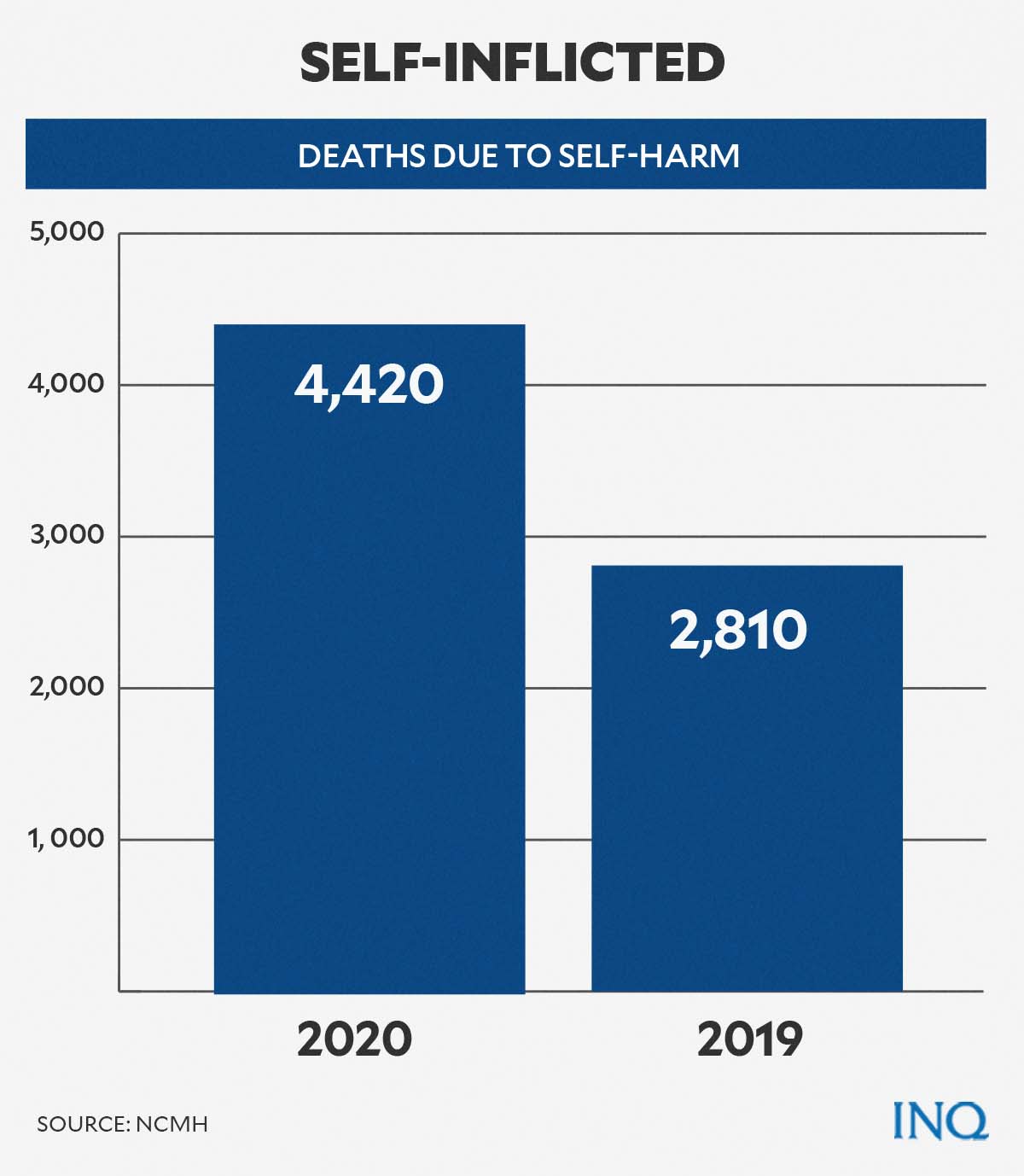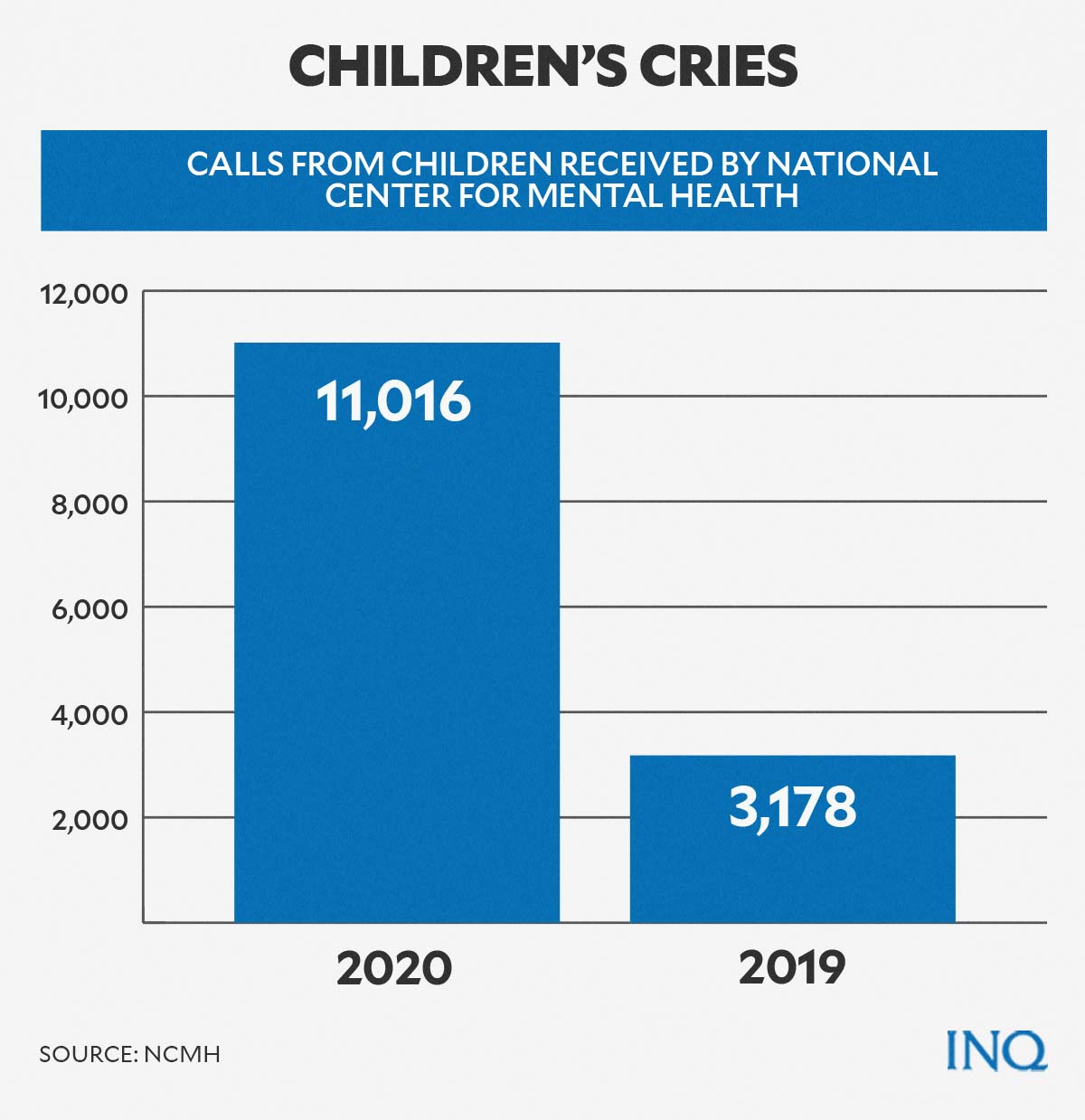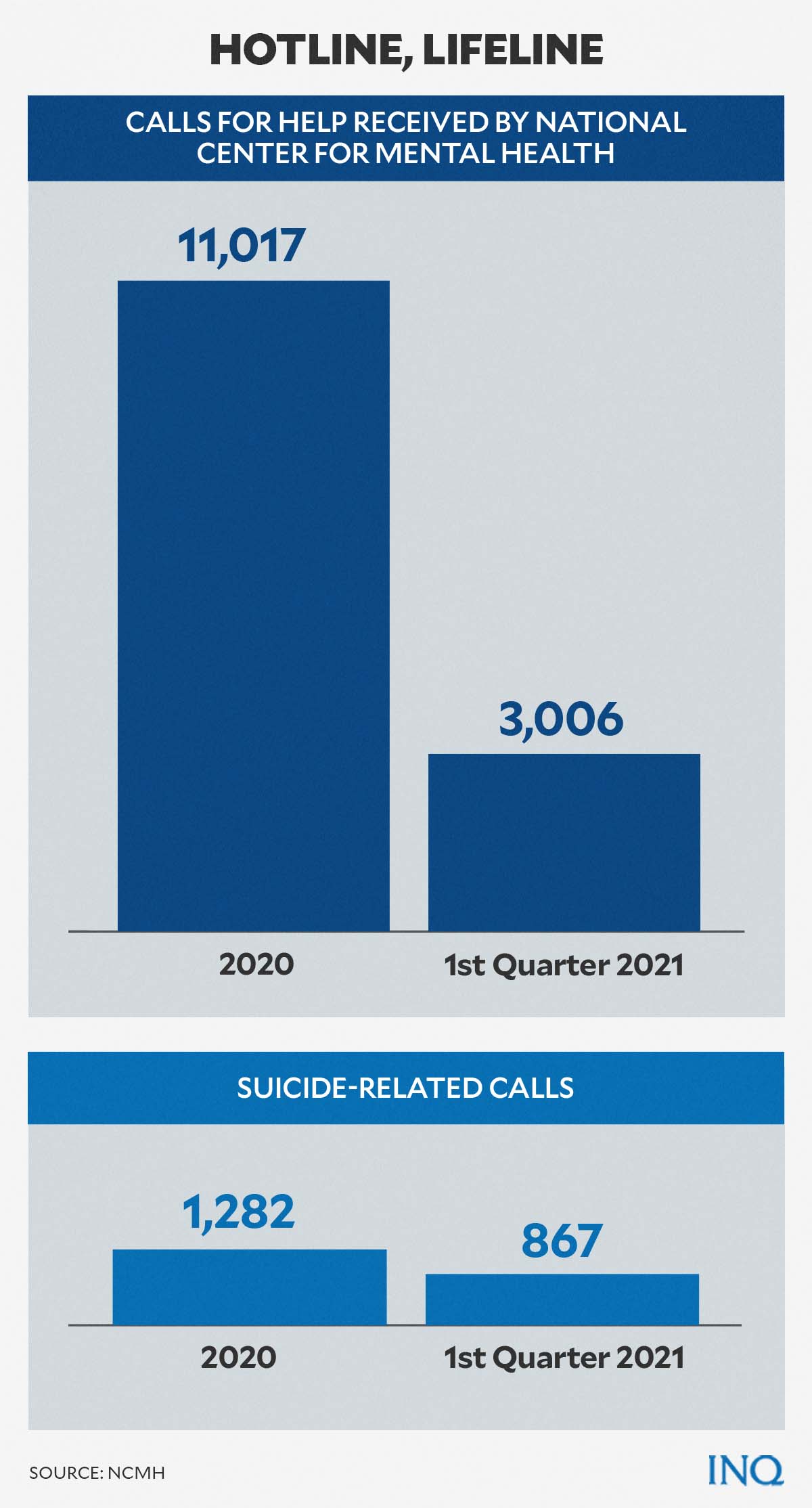Mental health in a time of pandemic: The invisible suffering
MANILA, Philippines—The observation this year of National Mental Health Week could not have come at a more relevant time.
National Mental Health Week—observed annually in the Philippines every second week of October—used to be held every January and September.
Mental health, as defined by the United States Centers for Disease Control and Prevention (CDC), is a person’s emotional, psychological and social wellbeing.
World Health Organization (WHO) said it is an “integral and essential component of health” which helps a person realize his or her own abilities to handle or cope with stress, relate to others, and make healthy choices.
In 1954, then-President Ramon Magsaysay signed Proclamation No. 37 and declared the third week of September of every year as National Mental Health Week.
“[A] sound mental health is necessary to the attainment of individual happiness and efficiency, to the establishment of peace and order, and to the promotion of economic and cultural progress,” the proclamation read.
However, the Magsaysay proclamation was revoked when former President Carlos P. Garcia signed Proclamation No. 432 in 1957 and moved the annual observation of mental health awareness to every third week of January of every year.
Proclamation No. 452, signed by then-President Fidel V. Ramos, superseded the 1957 proclamation in 1994.
Ramos’ proclamation stated that National Mental Health Week should be observed every second week of October of every year. This was the version that remained until now.
This coincided with the annual observation of World Mental Health Day held every October 10—designated by the World Federation for Mental Health (WFMH) nearly 30 years ago and recognized by WHO.
“First World Mental Health Day’s celebration has triggered more active international communications, which lead to a stronger cooperation worldwide among the participating organizations,” Proclamation No. 452 stated.
“[A] synchronized worldwide celebration will get more public attention and support for mental health work and it has become expedient to be more in accord with the celebration of the World Mental Health Day to change the date of celebration of the National Mental Health Week,” it added.
In observation of what used to be mental health week in the country, INQUIRER.net will try to discuss the mental health condition of many individuals in the Philippines—especially amid the ongoing COVID pandemic.
Battling mental health amid pandemic
As SARS-COV-2—the virus that causes COVID-19—spread across the world, people reported feeling afraid, worried, and stressed—all of which WHO explained were normal responses to perceived or real threats, especially at times of uncertainty.
The University of the Philippines Diliman Psychosocial Services (UPD PsycServ) explained that the mix of emotions felt and experienced by many during the pandemic are normal.
According to UPD PsycServ, factors like quarantine, physical distancing, bad or negative news, lack of certainty, health risks, and the lack of supplies or basic needs amid the pandemic can make people go through so many emotions.
The pandemic does not only trigger normal responses to threats, it has also triggered mental health conditions and exacerbated existing ones among many people.
“Many people may be facing increased levels of alcohol and drug use, insomnia, and anxiety,” said WHO.
COVID-19, WHO said, has increased the demand for mental health services worldwide.
The Philippines’ Department of Health (DOH), citing data from the WHO Special Initiative for Mental Health, said at least 3.6 million Filipinos suffer from one kind of mental, neurological, and substance abuse disorder in the early part of 2020.
Data presented by the National Mental Health Program (NMHP) showed at least 1,145,871 individuals in the country have depressive disorder, 520,614 with bipolar disorder, and 213, 422 said they have schizophrenia.
“This is an understatement,” said DOH NMHP head Frances Prescilla Cuevas.
“This is just a figure [that is] underreported because it only tackles a few of the conditions,” she added.
Figures from several other studies further highlighted the impact of COVID-19 on the mental health of many individuals.
The DOH reported last year that the number of calls received by the hotlines of the National Center for Mental Health (NCMH) regarding mental health concerns—including suicide—has spiked during the pandemic.
During the first quarter of 2021, the NCMH provided assistance to 3,006 individuals who called its hotlines. Meanwhile, there were 867 suicide-related calls during the same period.
READ: Mental health, suicide hotline calls up in 1Q 2021 — DOH
In 2020, the NCMH received 11,017 calls seeking mental health assistance, while 1,282 were suicide-related calls.
READ: The crisis within: Suicides rise as COVID takes its toll on lives, livelihood
At an online briefing last August, Dr. Agnes Joy Casiño, a psychiatrist and Department of Health (DOH) consultant, said that a study conducted by UP in 2020 showed that a quarter of 1,879 respondents reported having “moderate to severe” anxiety issues due to COVID concerns.
A sixth of respondents said they had “moderate to severe” depression, as the pandemic continued to have a significant psychological impact on their lives.
Casiño also noted that it was “alarming” that many calls received by mental health hotlines during the pandemic came from adolescents.
[T]he younger ones are calling and they want to talk to someone about their mental health,” she said.
Data from the NCMH detailed that the number of calls from children seeking help spiked by 347 percent from 3,178 in 2019 to 11,016 in 2020.
The Council for the Welfare of Children (CWC) said that it was alarming, given that 12.48 percent—or at least 1,375—of the total number of calls received last year were classified as suicide-related calls.
In October last year, the group Samahan ng Progresibong Kabataan reported 17 suicide cases among students last school year.
READ: National Children’s Month: Cause for celebration or worry?
“The COVID-19 pandemic has evoked overwhelming reactions and emotions from people,” said Health Secretary Francisco Duque III in a statement.
“Many have had their livelihoods affected, others are worried about keeping their families safe. There are many reasons why we need to take extra care now when it comes to mental health,” he added.
About death and grief
The COVID-19 pandemic has taken the lives of many individuals since 2020. As of Jan. 23 this year, the DOH has recorded 53,473 COVID deaths.
Mental health issues have also claimed many lives during the ongoing global health pandemic.
In 2020, at least 4,420 people in the Philippines died due to intentional self-harm, according to the Philippine Statistics Authority (PSA).
The numbers were 57 percent higher than that in 2019 with 2,810 suicide-related deaths.
The uptick has brought suicide as the 25th leading cause of death in 2020, six notches higher than in 2019 when it ranked 31st.
Dr. Natalia Skritskaya—researcher and clinical psychologist—and Katherine Shear—clinical researcher and a professor of psychiatry—both explained that having “survivor guilt” can be very common in the pandemic.
Grief in the time of the pandemic, however, was not only due to the death of a loved one, a friend, a neighbor, and other people who did not survive the dreaded disease.
“Survivor guilt is a very common feeling of discomfort or guilt because you are alive and well when someone else has died,” Skritskaya and Shear wrote in an article published by the Anxiety & Depression Association America (ADAA).
“This can be especially pronounced in situations like Covid where it seems random and unfair that one person dies and other lives,”
Grief, according to the UPD PsycServ, was also felt and experienced by people who have lost their jobs, livelihood, opportunities, freedom, and others.
“During these times, we are all experiencing grief,” the UPD PsycServ said in a Facebook post written in Filipino.
“We are not just grieving over those who died from COVID-19. Some are grieving because we lost our dreams, we lost our ambitions. We have even lost the previous life that we led,” Casiño added.
The UPD PsycServ reminded the public that no matter the root of a person’s grief is, experiencing and feeling it was natural and that there is no such thing as normal length for a person’s grieving period.
According to CDC, grief is “a normal response to a loss during or after a disaster or other traumatic event” and it can happen “in response to a loss of life, as well as drastic changes to daily routines and ways of life that usually bring us comfort and a feeling of stability.”
Some of the signs tied with grief include shock, disbelief, or denial, as well as anxiety, distress, anger, periods of sadness, and loss of sleep and appetite.
Grief that is caused by deaths or unemployment and other factors may happen at the same time. When this happens, a person might suffer prolonged grief—which in turn can further delay a person’s ability to adapt, heal, and recover.
Still, there are many ways a person can cope and overcome grief during a pandemic.
Your mental health matters
When it comes to facing and processing grief, the UPD PsycServ gave the following advice:
- Be kind and remember that people experience grief in different ways.
- Try to balance negative and positive thoughts.
- Reach out to loved ones or those who care or love us.
- Take care of our physical health.
- Focus on things and activities that can make us feel better and relaxed.
- Practice mindfulness.
- Gather strength and comfort through faith.
- Talk and consult with mental health professionals.
“Having and feeling different emotions is part of the grieving process. Let us face our sadness, anger, regret, happiness, and love since all of these can help remind us how important our deceased loved ones are in our lives,” the UPD PsycServ said in a Facebook post written in Filipino.
https://www.facebook.com/updpsycserv/photos/a.984528781978933/984528815312263
The Foundation for Advancing Wellness, Instruction and Talents (AWIT) listed warning signs to watch out for when checking on someone who may commit intentional self-harm.
These warning signs include:
- When one threatens to kill himself, saying that they wish to die.
- When one behaves in ways that are life-threatening or dangerous.
- When one attempts to set possessions in order and make contact with people they have not spoken with after a long time.
“It’s not easy reading about somebody suffering to the point of contemplating suicide,” the UPD PsycServ said.
“When somebody posts about it on social media, it can make us feel anxious and not know how to help. Even more so when the person who posts is somebody unknown to us and doesn’t want to be identified,” it added.
Here are some things to do, according to the organization, when you read or see a suicide post online:
- Show empathy and compassion if you’re planning to send a message.
- Avoid sending messages that might invalidate the person’s problems or feelings.
- Avoid making wholesale promises of rescue.
- Calmly and gently encourage the person to call crisis hotlines.
https://www.facebook.com/updpsycserv/posts/1219504298481379?fbclid=IwAR3zZPiRxuOyWA3rZY-vL6H5Or9swhfxa41I1OpgkAmS1eGbxSlWadIGTYE
There are three things to remember which can help manage mental health during the pandemic.
The UPD PsycServ reminded the public that it is important to take a break every now and then.
Slowing down and taking breaks can help limit worry and agitation, especially when watching or listening to media coverage “becomes too overwhelming.”
It also advised people to make time to connect with friends, family, and loved ones—and be open about feelings and concerns.
Lastly, the UPD PsycServ suggested the release of endorphins “through exercise or physical activities.” Endorphins are hormones released by the brain and are associated with feelings of happiness.
“Don’t forget to take care of your body by sleeping and eating healthy.”
https://www.facebook.com/updpsycserv/posts/932968670468278?fbclid=IwAR1-f4pIFTdym0-pE8QA7uxE41dHEhaU4suUnewIjm3EH-LeeMFTyyjPaWA
The NCMH can be reached via its crisis hotlines: 1553 (landline), 0966-3514518 or 0917-8998727 for Globe and TM subscribers; and 0908-639-2672 for Smart, Sun and Talk N Text subscribers.
RELATED STORIES:
‘End the stigma—all feelings are valid!’
Let’s talk about mental health
TSB
For more news about the novel coronavirus click here.
What you need to know about Coronavirus.
For more information on COVID-19, call the DOH Hotline: (02) 86517800 local 1149/1150.
The Inquirer Foundation supports our healthcare frontliners and is still accepting cash donations to be deposited at Banco de Oro (BDO) current account #007960018860 or donate through PayMaya using this link.
